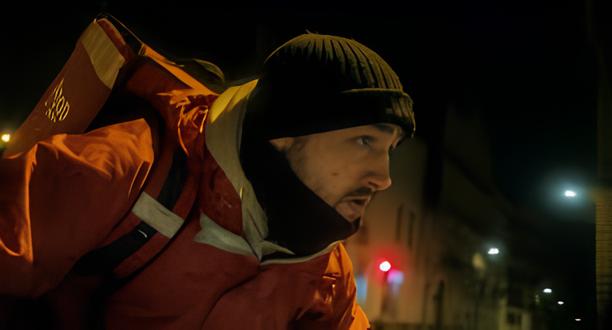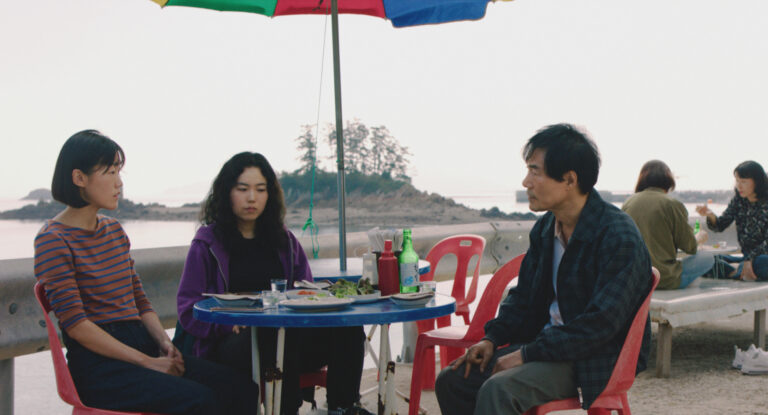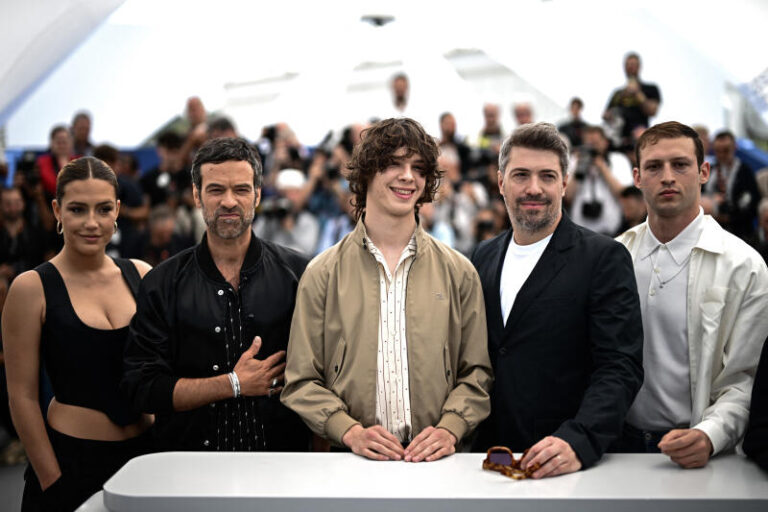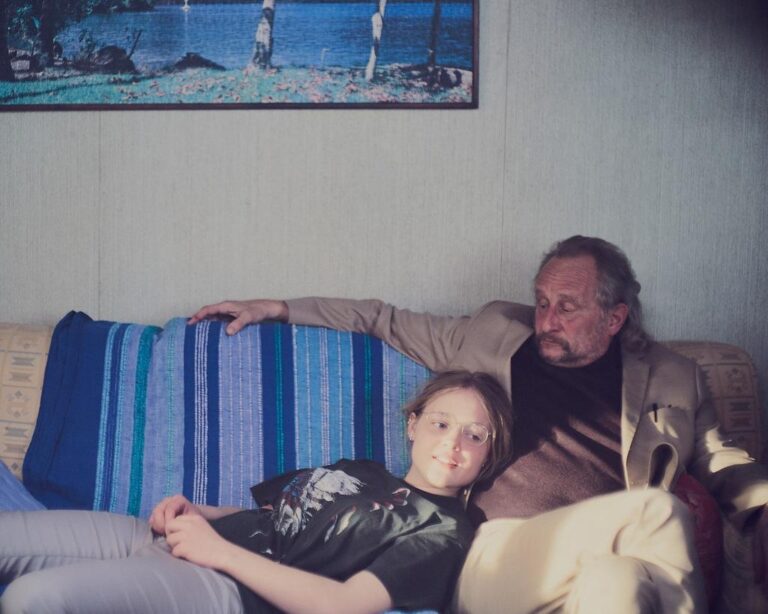
French Films at Metrograph: February 2024
Film
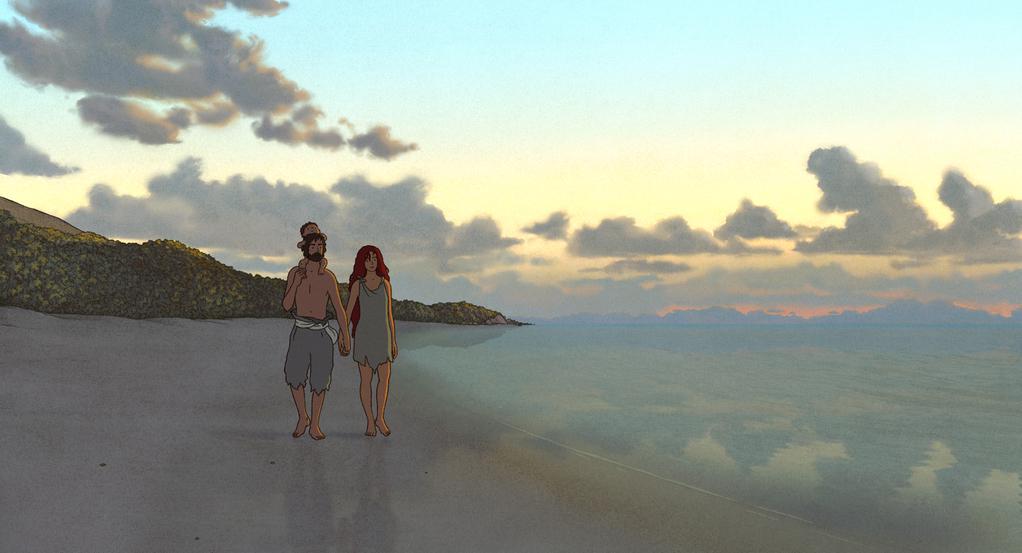
The Red Turtle © Michael Dudok De Wit / Goodfellas, Why Not Productions
Metrograph
7 Ludlow St
New York City, NY 10002
February 1 - February 25, 2024
Check out the selection of French films and co-productions that will be screened at Metrograph (NYC) in February.
Part of The Future Looks Bright from Afar
Alphaville by Jean-Luc Godard – February 2 and 3
In Eddie Constantine’s B-movie, private detective Lemmy Caution finds himself on the toughest case of his career, on the trail of rogue scientist Professor von Braun, the inventor of Alpha 60, a sentient computer that keeps tabs on the citizenry of “Alphaville”—a modern-day Paris shot by cinematographer Raoul Coutard as a cold glass-and-steel city of the future. A dystopian dazzler from Godard, with Anna Karina, as von Braun’s daughter, accompanying Caution in his investigation.
Part of Jester in the Court: Jean-Pierre Léaud’s Finest Follies
Made in USA by Jean-Luc Godard – February 1
A provincial French city plays Atlantic City and Anna Karina (in her last film with Godard) plays a trench-coated woman searching for her boyfriend, Richard, in JLG’s cockeyed deconstruction of American noir tropes, its cast rounded out by Marianne Faithfull, and Jean-Pierre Léaud, the latter giving a masterclass in slapstick as a loitering tough guy with the unlikely sobriquet Donald Siegel (no relation to the Hollywood genre specialist of the same name). Very loosely based on Donald Westlake’s The Jugger—to the dismay of Westlake—this Pop Art-styled pastiche embodies its director’s conflicting love of American pop culture and hatred of America as a political entity. “Not the celluloid holy grail, but it’s close enough.”—J. Hoberman, The Village Voice
The Death of Louis XIV by Albert Serra – February 3
As a long-reigning star of French cinema, Jean-Pierre Léaud is the natural choice to play France’s Sun King in the twilight of life. Serra’s morbidly comic film is a deathbed vigil for Louis XIV, closely observing both the king’s slow, wasting last days as he is consumed by gangrene in his candlelit bedchamber and the scrupulous observation of court ritual by his retinue of servants and doctors. The Death of Louis XIV serves as a sumptuously photographed, comically perverse, and engrossingly macabre cinematic experience.
Irma Vep by Olivier Assayas – February 3 and 4
Maggie Cheung in the role she was literally born to play: Maggie Cheung. The Hong Kong actress stars in a remake of Louis Feuillade’s 1915 serial Les Vampires directed by a New Wave has-been (Jean-Pierre Léaud), but then finds herself submerged in a strange world of flirtatious lesbians, bourgeois ex-radicals, Luc Besson admirers, and all-night raves, all the while becoming oddly in thrall to her form-fitting S/M catsuit, which lures her out onto the rooftops of Paris. A meditation on global cinema at a moment of transition, a comedy about filmmaking and cultural crosstalk, and a movie so alive to the textures of contemporaneity that it hasn’t aged a day.
The Mother and the Whore by Jean Eustache – February 10 and 11
Eustache’s biggest claim to fame—or, in some circles, notoriety—is this mordantly funny, self-flagellating autobiographical epic of rapier-sharp dueling dialogue. Léaud is all dandyish flair as Alexandre, a hangdog layabout, who becomes involved in a three-way affair with two women: live-in lover Bernadette Lafont and morose nurse Françoise Lebrun. A blistering yet humane portrait of moral waywardness and sexual discontent in post-May ’68 Paris, Eustache’s cri de coeur is a caustically funny and intellectually rich film that generates passionate new partisans whenever it screens. “Jean Eustache is a genius. The Mother and the Whore is The Rules of the Game of our generation.”—Philippe Garrel
Part of Fire over Water: Films of Transcendence
The Red Turtle by Michaël Dudok de Wit – February 24 and 25
The first external co-production by Studio Ghibli, Academy Award-winning minimalist animator Dudok de Wit’s dialogue-free first feature applies ravishing visuals to the deceptively simple story of a man stranded alone on a desert island whose attempts to escape via a handmade raft are foiled time and again by a massive sea turtle. “A desert island film about succumbing rather than just surviving… A precise and elegant fable, which uses magical realism to wind its elements together… Astonishingly moving.”—Sight and Sound
Part of Beach Bodied
La Piscine by Jacques Deray – February 14, 16, and 17
It’s trouble in paradise when lovers Alain Delon and Romy Schneider’s poolside idyll at a St. Tropez villa is interrupted by the arrival of her ex, Maurice Ronet, and his rapidly maturing daughter, Jane Birkin. Beautiful people, ravishing landscapes, and quite a bit of ugly behavior add up to make one of the most cherished of French thrillers, where no amount of time in the water will serve to wash this quartet clean. “Icily erotic! Seething passion and emotional chaos lie beneath the symbolically placid surface of the villa’s swimming pool, which becomes the site for both seduction and violent revenge.”—Dave Kehr, The New York Times
Part of Dream-Like Visions: The Multi Sensorial Cinema of Alain Gomis
Rewind & Play by Alain Gomis – February 9 and 11
“While conducting research for a fictional piece about Thelonious Monk, Gomis secured access to unedited raw footage from a December 1969 documentary about Monk produced for French television. Rewind & Play is a skillfully re-edited hour-long version of a troubling interview between fellow jazz pianist Henri Renaud and Monk, in which Gomis sheds light on both Monk’s loneliness and resilience in the face of Renaud’s trivializing approach. The result is a compelling behind-the-scenes documentary showcasing the legend at work, coupled with a thought-provoking filmic essay on the issue of casual racism.”—Adeline Monzier, series curator
Post-screening discussion with director Alain Gomis and series curator Adeline Monzier, including musical performance from David Bertrand, on Friday, February 9.
Félicité by Alain Gomis – February 10
“Gomis’s vibrant, tumultuous fourth feature follows Félicité, a free-willed nightclub singer in the heart of Kinshasa, whose life is thrown into turmoil when her 14-year-old son gets into a terrible car accident. To raise the money to save him, she embarks on a harsh journey, seeking aid from friends, family, and strangers in the streets of the bustling capital, ultimately leading to a profound exploration of her own soul. Buoyed by a powerful performance by Véro Tshanda Beya Mputu, Félicité is a tapestry of toughness, tenderness, lyricism, mystery, humor, and terror. This emotional rollercoaster, selected as Senegal’s entry for the 90th Academy Awards in 2017, marks a ground-breaking moment as the country’s first submission for the Best Foreign Language Film category.”—Adeline Monzier, series curator
Q&A with director Alain Gomis, moderated by film critic and programmer Yasmina Price on Saturday, February 10.
Tey (Today) by Alain Gomis – February 9 and 10
“An insightful and existential parable about self-discovery in the face of mortality. In a village outside Dakar, Satché (actor, musician, and poet Saul Williams) discovers that today marks the final day of his life. From dawn until dusk, he traverses the Senegalese streets, observing the landmarks of his past with fresh eyes and bidding farewell to those around him—his first love, his friends, children, and wife. Gomis crafts a poignant and contemplative drama, offering a beautiful, compassionate tale that captures the variously joyous and tragic moments of a man’s concluding hours on Earth.”—Adeline Monzier, series curator
Introduction and Q&A featuring director Alain Gomis, moderated by Editor-in-Chief of SUNU Journal Amy Sall, on Saturday, February 10.
Saint Omer by Alice Diop – February 11
“Diop’s first narrative feature is a striking courtroom drama that reimagines the Medea myth. In the town of Saint Omer, located in northern France, Rama (Kayije Kagame), a successful journalist and author from Paris, immerses herself in the trial of Laurence Coly (Guslagie Malanda), a young Senegalese woman accused of murdering her infant daughter. Laurence’s candid admission of the act, lacking a clear motive, shakes Rama’s emotional stability as she grapples with the case, confronting memories of her immigrant mother and her own pregnancy denial. Diop skillfully navigates the complexities of motherhood, immigration, and cultural myths, crafting a film that is not only riveting and superbly acted but also possesses multiple layers, ultimately uncovering humanity in the midst of the inhumane.”—Adeline Monzier, series curator
Introduction by Alain Gomis on Sunday, February 11.
In partnership with

Metrograph
Metrograph is the ultimate destination for movie lovers. A special curated world of cinema inspired by the great New York movie theaters of the 1920s and the Commissaries of the Hollywood Studio backlots, Metrograph is a community inhabited by movie professionals screening their work, taking meetings, watching films, collaborating together — an audience built around our shared love of cinema.


